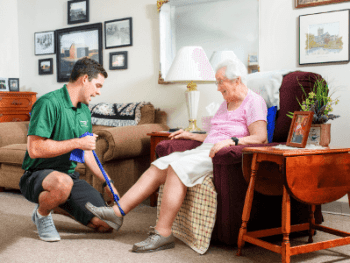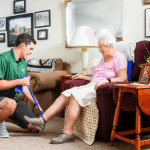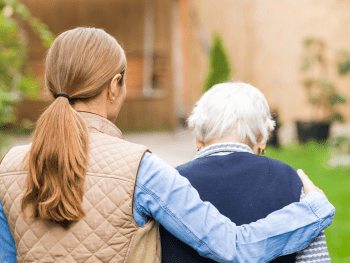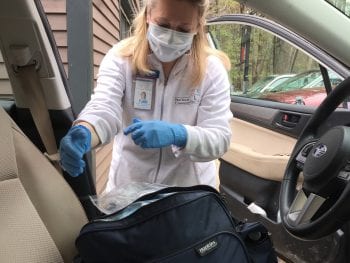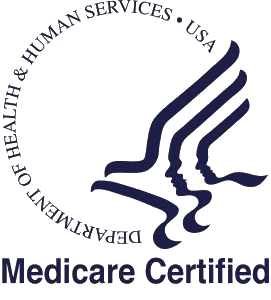Pemi-Baker Hospice & Home Health Announces Advance Care Planning Workshops and Special Wellness Presentation in Honor of National Healthcare Decisions Day.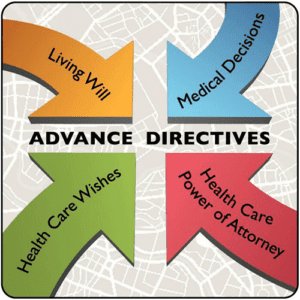
As National Healthcare Decisions Day (NHDD) approaches on April 16th, Pemi-Baker Hospice & Home Health reaffirms its commitment to empowering individuals and families in making informed healthcare choices. NHDD serves as a crucial reminder of the significance of advance care planning, encouraging open discussions about healthcare preferences and ensuring those wishes are respected.
In alignment with the mission of NHDD, Pemi-Baker Hospice & Home Health is pleased to announce a series of free workshops throughout the month of April. These workshops will be held during the Ask A Pemi-Baker Nurse days at participating Grafton County Senior Centers, providing an accessible platform for individuals to learn and engage in advance care planning discussions.
The schedule for the workshops is as follows:
- Thursday, April 3rd, 11:15am-12:30pm: Orford Area Senior Services
- Wednesday, April 9th, 10:30-11:30am: Horse Meadow Senior Center
- Monday, April 14th, 11:30am-12:30pm: Plymouth Regional Senior Center
- Thursday, April 17th, 12:30pm-1:30pm: Lin-Wood Area Senior Services
During these workshops, attendees will have the opportunity to ask questions through the process of filling out their Advance Directive and POLST forms. These sessions are offered free of charge, with all necessary forms provided.
“National Healthcare Decisions Day is a vital initiative, and we are proud to support it by offering these educational workshops,” said Aubrey Engle, RN, Executive Director at Pemi-Baker Hospice & Home Health. “By providing resources and guidance, we aim to empower individuals in making informed decisions about their healthcare preferences.” 
Additionally, the Linwood Area Senior Services Center will host a special workshop, “Wellness, Health & Happiness as We Age,” on Monday, April 14th, from 12:30-1:30pm. This presentation, led by Dr. Kristi Saunders, Hospice Medical Director, will highlight the importance of holistic health as we age, focusing on the integration of physical, mental, and spiritual well-being. Dr. Saunders will discuss how true wellness and happiness contribute to overall health and longevity.
For more information about the workshops or to inquire about advance care planning, please contact Pemi-Baker Hospice & Home Health at 603-536-2232 or visit our website at www.pbhha.org.




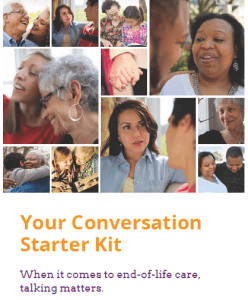



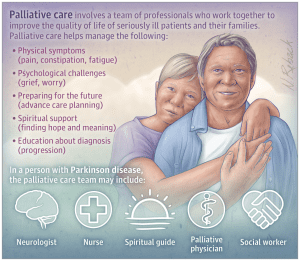
 Your palliative care team can help you with all this and more. The team will be your sounding board and your first line of defense against any symptoms of pain, discomfort, depression or anxiety.
Your palliative care team can help you with all this and more. The team will be your sounding board and your first line of defense against any symptoms of pain, discomfort, depression or anxiety. March is National Social Worker month and Pemi-Baker Hospice & Home Health wants to celebrate their social workers- Shannon Cassidy, BSW and Lauren Bell, BSW by explaining the details of Palliative and Hospice social work. The mission of hospice and palliative care social workers is to help clients and their families manage difficult situations and illnesses with dignity and peace of mind.
March is National Social Worker month and Pemi-Baker Hospice & Home Health wants to celebrate their social workers- Shannon Cassidy, BSW and Lauren Bell, BSW by explaining the details of Palliative and Hospice social work. The mission of hospice and palliative care social workers is to help clients and their families manage difficult situations and illnesses with dignity and peace of mind. What Does a Hospice or Palliative Care Social Worker Do?
What Does a Hospice or Palliative Care Social Worker Do?

 Through all this, we see Alice’s progressive deterioration through the loss of her teaching career, her advancing inability to recognize those closest to her, disorientation within her own home, an interrupted suicide attempt, her husband’s decision to relocate in favor of his professional betterment, and the loving self-sacrifice of Lydia to care for her. Despite the wasting away of the many qualities that made her the person she had been, she remains “still Alice” in a brief moment of recall when she is able to identify the importance of love.
Through all this, we see Alice’s progressive deterioration through the loss of her teaching career, her advancing inability to recognize those closest to her, disorientation within her own home, an interrupted suicide attempt, her husband’s decision to relocate in favor of his professional betterment, and the loving self-sacrifice of Lydia to care for her. Despite the wasting away of the many qualities that made her the person she had been, she remains “still Alice” in a brief moment of recall when she is able to identify the importance of love. “The Father” features Olivia Colman (currently seen as Queen Elizabeth II in Seasons Three and Four of the series “The Crown”). For her portrayal as Anne, Anthony’s daughter, Colman was nominated for the Academy Award for Best Supporting Actress.
“The Father” features Olivia Colman (currently seen as Queen Elizabeth II in Seasons Three and Four of the series “The Crown”). For her portrayal as Anne, Anthony’s daughter, Colman was nominated for the Academy Award for Best Supporting Actress. What to do about emerging potentially aggressive behaviors? How to live with the strain imposed on other intimate relationships? When does one arrive at the point of surrendering caregiving to a corps of providers in a setting that may better manage the patient’s needs? Hopkins’ masterful performance in this intense drama can be seen on You Tube, Amazon Prime, and Vudu.
What to do about emerging potentially aggressive behaviors? How to live with the strain imposed on other intimate relationships? When does one arrive at the point of surrendering caregiving to a corps of providers in a setting that may better manage the patient’s needs? Hopkins’ masterful performance in this intense drama can be seen on You Tube, Amazon Prime, and Vudu.



